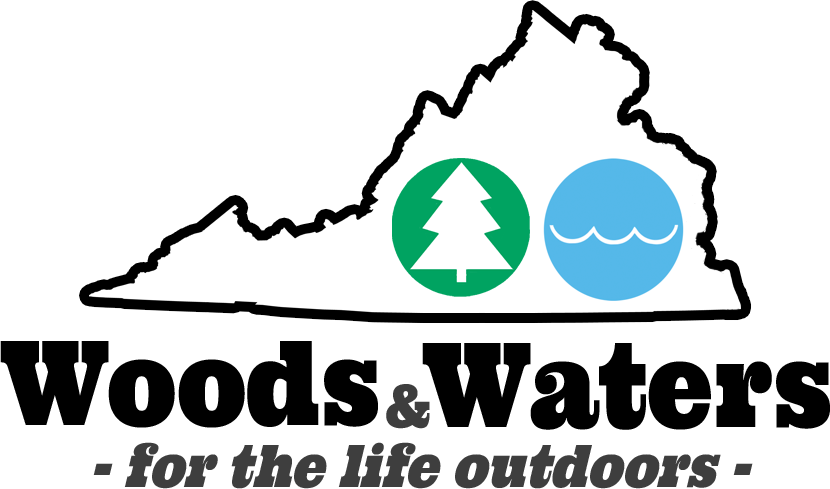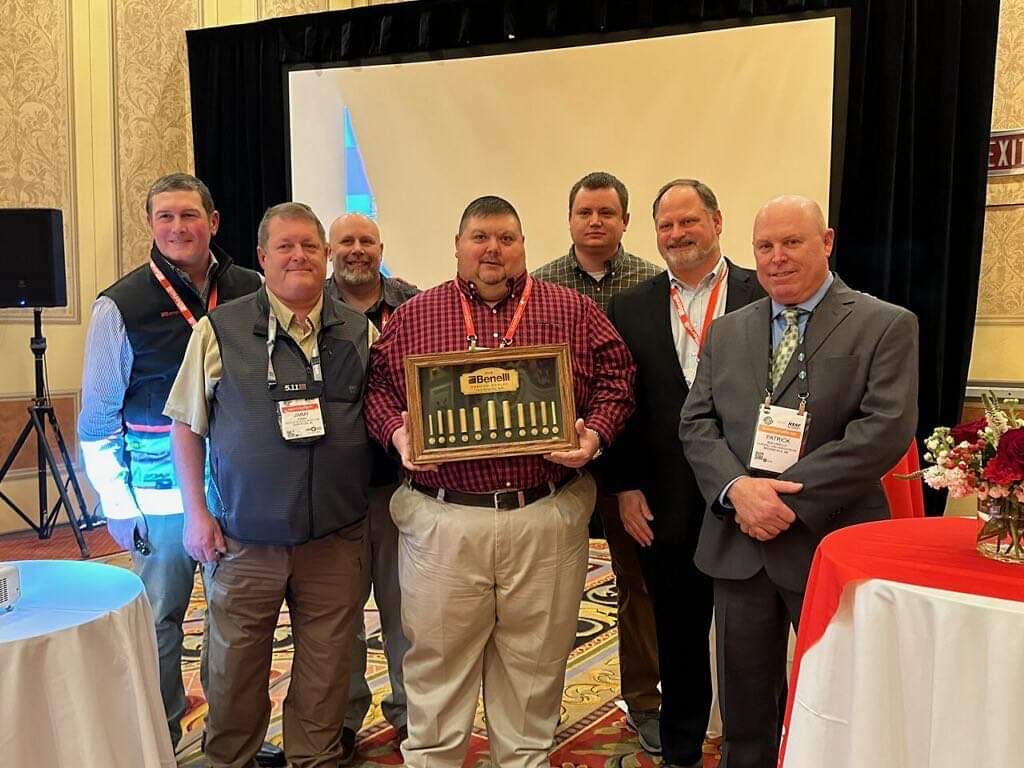James River Tackle Co. owner Donnie Bell notes the tidal James River was receiving very little fishing pressure as very few tournaments were held in January or for that matter, this month. He said it’s a good time to go get yourself a mailbox-sized bass. The river is stained and water temperature was around 40-43 degrees at the late-January W2 deadline.
Bell told W2 that as long as the water stays relatively clear anglers can expect to catch tidal James bass on jerkbaits, pig-n-jig and shaky head. Expect water temperatures to creep into the high 40’s at some point later in the month.
Bell suggests fishing the barge and gravel pits, creek mouths and warm water outlets if you visit this month. He says he really doesn’t go past Hopewell from Osborne, and that you can do pretty well around Dutch Gap.
Crappie fishing on the tidal James is very good now. You can still catch them in the Barge Pit up near the power plant, right up on the sunken boats and barges using jigs and minnows.
Lake Chesdin was a little high and but not too cold by mid-January. The water temperature was 43-44 degrees.
Bass are in the mid and down lake region this month as they follow schools of gizzard shad. A three-inch Keitech swimbait is the bait to use when you find these fish.
Try some flutter spooning and blade baits in 18-22’ of water where schools of bass, striper, crappie and perch are feeding on bait and often revealed by sea gulls.
Bell notes fishing in the Appomattox River can be pretty good in late February as many bass over-winter in it, off the James River. One of his favorite tactics is pitching a creature bait to wood on deep banks on a warm afternoon. Google Earth the Appomattox all the way up to Colonial Heights and note some good fishing areas to try this month. Check with Bell on launch ramps and current river conditions.
Shooter’s Archery/Angler’s Tackle is now known as Central Virginia Outdoors. The shop is north of Richmond, about halfway to Fredericksburg near Ladysmith. This shop offers bow hunting and archery enthusiasts a very unique venue that includes an indoor and outdoor range, pro shop and a fishing tackle section as well as live bait.
Robby Patterson of Propeller Dynamics invites you to stop by his showroom this month to see his selection of new Xpress and Falcon boats and used boats. He’s also the area authorized warranty service center for Minn Kota, MotorGuide, Lowrance, Power Pole and Garmin so if you have a marine electronic, he can fix it or sell you a new one! He also offers propeller repairs and sales if you found a rock over the summer with your rig.
If this is the season you have decided to switcvh over to lithium batteries, consider having Patterson’s crew install Ionic batteries and the accompanying charging system. They an are a dealer and experts at rigging.
Jo Jo’s in Manquin is counting the days to the first reports of croaker in the lower Rapphannock. This shop, west of Tappahannock on Rt. 301 is full of everything from fishing tackle to ammo, marine hardware to apparel.
Surf & Turf Outdoor Sports near West Point is your area Toadfish dealer. They stock the drinkware, rods, reels and oyster knives. While this shop leans a little more to the saltwater side of angling due to it’s proximity to the York River, it also stocks freshwater fishing gear.
Green Top Sporting Goods near Ashland just received a truckload of Carhartt clothing. They are also a Wranger Wear dealer and a Kuhle clothing dealer. The store’s selection of Olukia and Hey Dude footwear is unmatched in the state.
This store is 60,000 sq. ft. of serious gear for anglers (including fly fishing), hunters and shooters. Their new and used gun selection sets the standard in the mid-Atlantic region and they recently received the prestigious top dealer recognition from Beretta.
HPAI (Avian Flu) was found again in North America in January 2021, the first time it has been detected since 2014-15. It caused some localized mortality events in waterfowl and seabird populations in the winter of 2021 and resulted in the significant loss of domestic poultry in commercial farming operations across the country. As wild birds dispersed and migrated back north this past spring, the number of HPAI events in the U.S. declined. However, the virus was still present in some non-migratory bird populations, and it caused scattered mortality events in some “resident” Canada goose flocks, some backyard poultry flocks and among some local vulture populations over the past summer and fall. It has been detected again this fall in migratory waterfowl along the east coast and in Virginia. VDWR officials expect it to be even more prevalent than last winter, especially as more waterfowl and other migratory birds congregate on their migration and wintering grounds.
Most migratory waterfowl, shorebirds and sea bird species generally do not die or even show any signs of illness when infected. However, waterfowl that are carrying the virus can transmit it other bird species that are much more susceptible to the disease including raptors, turkey, quail, and grouse. In addition, domestic poultry are highly susceptible to the disease, and HPAI has the potential to cause significant bird mortalities and economic losses to the commercial chicken and turkey industry across the United States.
The Centers for Disease Control and Prevention considers the risk of HPAI infection from wild birds to people and pets (including hunting dogs) to be very low.
However, the following safety guidelines can help to prevent the transmission of the virus to poultry and other birds and help to ensure that your harvested game is safe to eat.
Do not handle or butcher birds that are obviously sick or are found dead.
Avoid contact with urates, feces, and bodily fluids when plucking and cleaning birds.
Do not eat, drink, or smoke while cleaning game.
Wear rubber gloves and other PPE such as safety glasses, and washable clothing when cleaning game.
Wash tools and working surfaces with soap and water, then disinfect with a 10% solution of chlorine bleach.
Keep uncooked game in a separate container, away from cooked or ready-to-eat foods.
Wash hands thoroughly with soap and water or disinfectant wipes immediately after handling game. If soap and water are not available, use alcohol wipes or an alcohol-based hand sanitizer.
Cook game meat thoroughly – birds should reach an internal temperature of 165°F as measured by a meat thermometer to kill disease-causing organisms and parasites.
If you have poultry or pet birds at home:
If you dress birds at home, clean them in an area that your poultry and pet birds cannot access.
Keep a separate pair of shoes to wear only in your game cleaning area. If this is not possible, wear rubber footwear and clean/disinfect footwear before entering or leaving the area.
Use dedicated tools for cleaning game, whether in the field or at home. Do not use those tools around your poultry or pet birds.
Double bag the offal and feathers. Tie the inner bag and be sure to take off your rubber gloves and leave them in the outer bag before tying it closed.
Place the bag in a trash can that poultry and pet birds cannot access. This trash should also be stored away from children, pets, or other animals.
Wash tools and working surfaces with soap and water, then disinfect with a 10% solution of chlorine bleach.
If you have direct contact with a potentially infected bird, monitor yourself for illness for 10 days. Call your medical provider and seek prompt medical care if you experience fever/chills, cough, sore throat, muscle/body aches, headache, runny/stuffy nose, conjunctivitis, nausea, abdominal pain, diarrhea, or difficulty breathing/shortness of breath. Let your provider know you had contact with a potentially HPAI-infected bird. You can also contact your local health department.
If you see a sick or dead eagle, hawk, owl, or turkey (excluding carcasses found on the road), please notify DWR via the Virginia Wildlife Conflict Helpline at 855-571-9003. Also, if you see five or more dead vultures, waterfowl, shorebirds, or seabirds in the same area within five days, please notify DWR at the same number. Additional information on reporting dead or sick birds along with how to dispose of bird carcasses can be found on our website, along with links to other sources of information.



